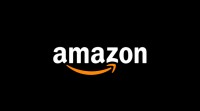According to a review by ProPublica, tech giant Amazon has begun to reserve the best placement in search results for its own products. Brands have been able to bid on search terms in order to gain visible listings at the top of the Amazon product search results. They can still bid on such placements, which also earns them a “sponsored” tag. But ProPublica and consultants found that, during the coronavirus pandemic, the company made the top left position on the first page unavailable to anything other than its own private-label products.
ProPublica reports that Amazon’s products are listed under the heading “featured from our brands.” As a result, competitive products, from diapers to lightbulbs, have been ranked lower. Consultants stated that, “by putting its own private brands in some of the most valuable slots, Amazon is sacrificing short-term ad revenue to build up sales of its private brands over time.”

Consultant Tim Hughes, who once worked in Amazon product management, noted that this move “violates Amazon’s mantra that every decision must put the customer first.” “Why would their brand be a better option for consumers?” he asked. “It doesn’t necessarily have to be cheaper, or better, or anything … This is just another example of Amazon being able to manipulate the platform for its own good use.”
By reserving the best advertising space for its own products, Amazon also took advantage of “the surge in online buying during the pandemic.” The move also may “accentuate antitrust concerns for a company already juggling domestic and global probes.”
Cleveland State University professor of antitrust law Christopher Sagers reports that its action could be viewed as “exclusionary conduct” — “which, along with proving a company has substantial market power, is a key element of antitrust cases.” “If I were their lawyer, this would definitely make me nervous,” he said. “It’s hard to explain the search results finagling as anything besides a nasty, anti-competitive move.”
An Amazon spokesperson said the company “did not adopt this strategy to take advantage of the pandemic” and that its products “have on average higher customer review ratings, lower return rates and higher repeat purchase rates than other comparable brands in the Amazon store.”
But consultant James Thomson reported that Amazon’s “private-label brands sometimes don’t have enough sales under the algorithm’s criteria to justify a listing on the first page of search results,” adding that the company “confuses consumers into thinking these products are more popular than they really are.”
Amazon offers 45 private-label brands with a total of 243,000 products available, accounting for about 1 percent of retail sales. Its share price jumped 30+ percent this year, “although the company missed earnings estimates for the most recent quarter because of higher costs.” The company “represents less than 4 percent of the U.S. retail market but nearly 40 percent of U.S. online sales.”
Amazon is facing two investigations in the U.S.: an ongoing probe by the House Judiciary Committee into “possible anti-competitive conduct by large tech companies including Amazon” and another by the Federal Trade Commission, which has “reportedly been looking into possible anti-competitive practices at Amazon for nearly a year.”

No Comments Yet
You can be the first to comment!
Sorry, comments for this entry are closed at this time.